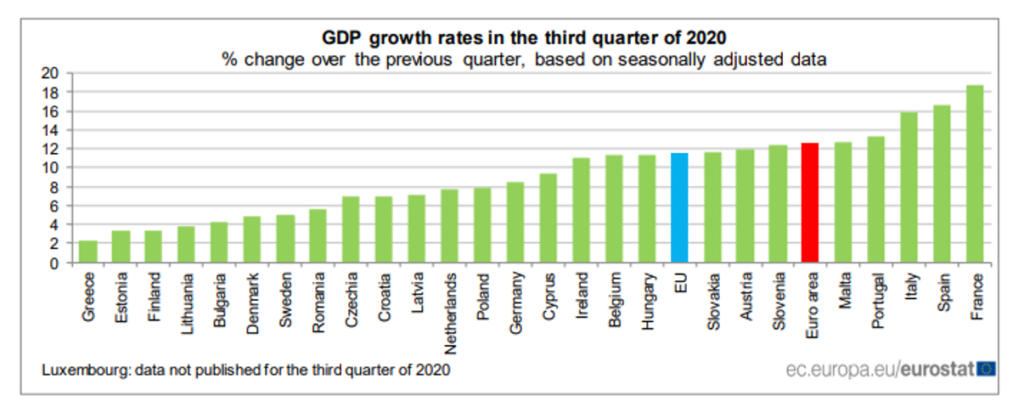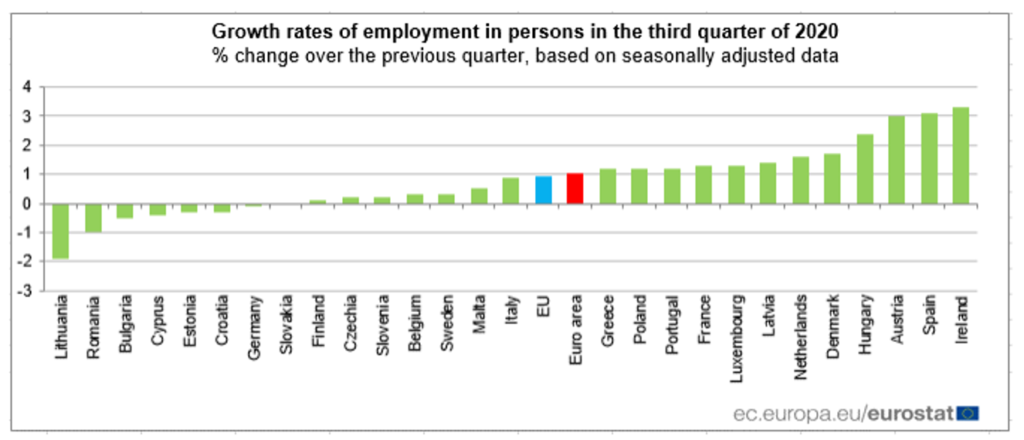
Greece registered a slight increase in GDP growth at + 2.3% well below the EU areas average, whilst slightly above the EU average in the employment growth rate at just over 1% compared to the previous quarter, according to the latest data published by Eurostat.
Cyprus fared much better in GDP with growth registered at near 6% but with minus growth in the employment numbers.
According to the data, in the third quarter of 2020, seasonally adjusted GDP increased by 12.5% in the euro area and by 11.5% in the EU compared with the previous quarter.
GDP growth by State
Among other EU member states, France (+18.7%), Spain (+16.7%) and Italy (+15.9%) recorded the sharpest increases of GDP compared to the previous quarter. These countries were also among the highest decreases in the second quarter.
Greece (+2.3%), Estonia and Finland (both +3.3%) and Lithuania (+3.8%) had the lowest increases of GDP. Except for Greece which registered a decrease of 14.1%, these other countries also had less pronounced declines during the second quarter.

Employment Growth
In the third quarter of 2020, Ireland (+3.3%), Spain (+3.1%) and Austria (+3.0%) recorded the highest growth compared with the previous quarter. The largest decreases were observed in Lithuania ( 1.9%), Romania (-1.0%), and Bulgaria (-0.5%).

The decrease in hours worked was generally much more pronounced for all Member States (see annex table on employment in hours worked).
Based on seasonally adjusted figures, Eurostat estimates that in the third quarter of 2020, 205.2 million people were employed in the EU, of which 157.4 million were in the euro area.
In relation to the COVID-19 pandemic, employment in persons is 3.6 million in the euro area (-2.2%) and 4.3 million (-2.1%) in the EU below the level of the fourth quarter of 2019.
Compared to the fourth quarter of 2019, the number of hours worked was 4.6% lower in the euro area and 3.6% lower in the EU.
